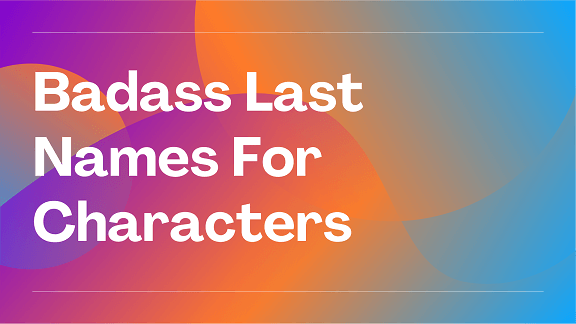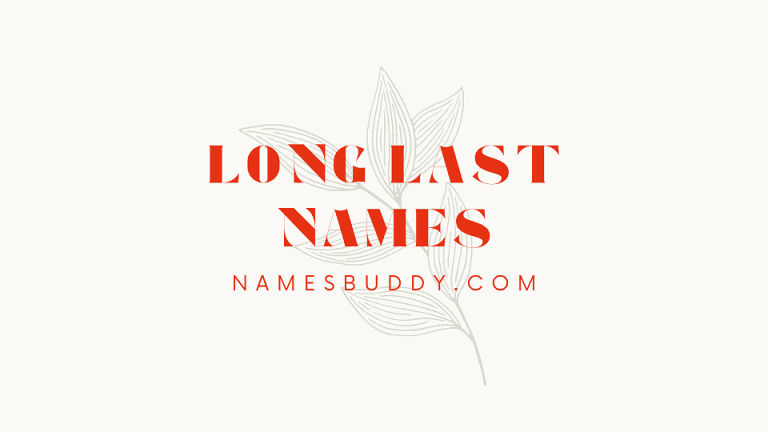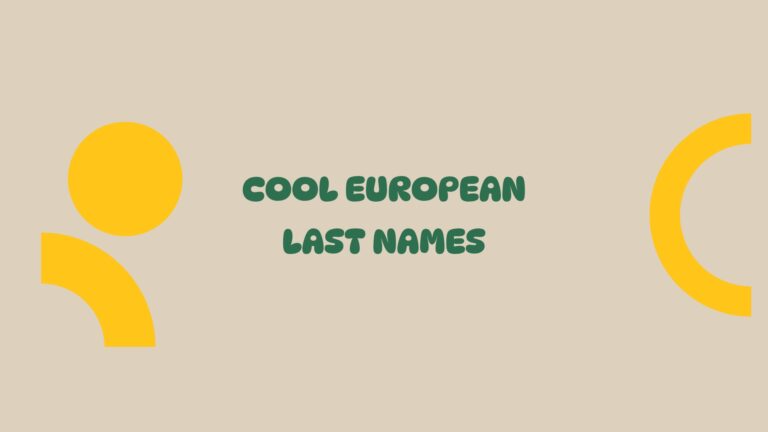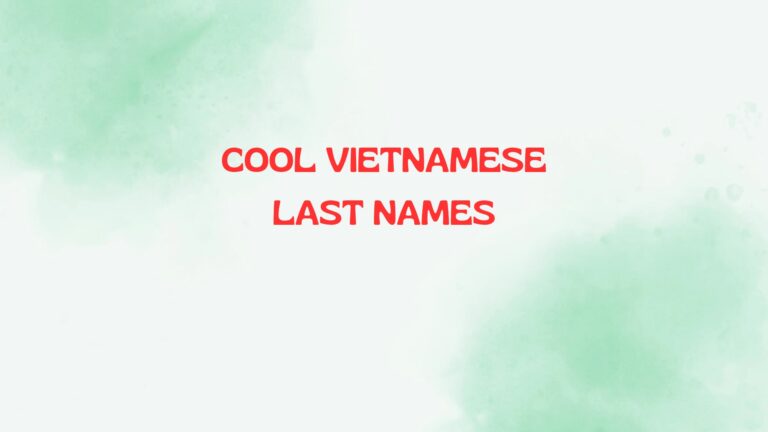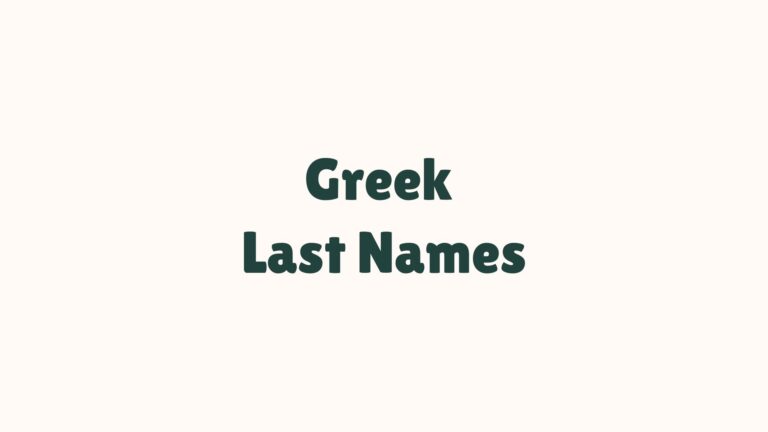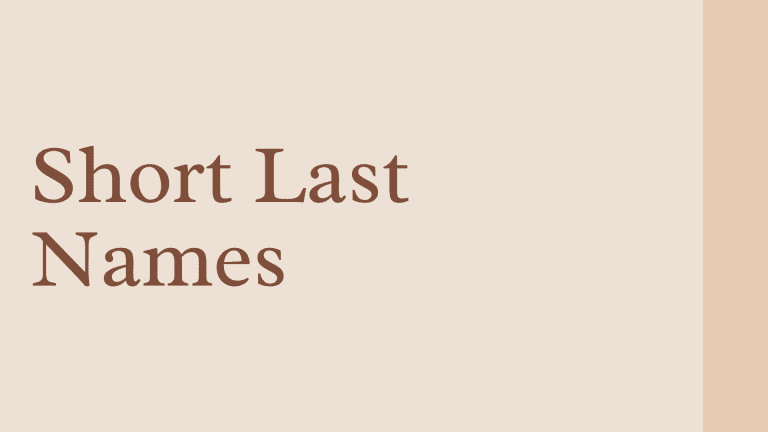100 Cool African Last Names
Different last names in Africa have profound cultural, historical, and linguistic significance that showcases the diverse nature of the continent.
From a name about ancestry or lineage to one about nature or profession or, indeed, spirituality, each last name tells a unique story.
Hence, whether inspired by the Bantu, Yoruba, Hausa, Amharic, or some different language family, African surnames generally bear meanings that designate what an individual belongs to and its community.
Further, some of these surnames may even associate with some major historical and cultural events.
This article will examine the roots, meanings, and cultural aspects of African last names while showing the beautiful ways in which names enrich identity and heritage.
African last names
Adebayo (Yoruba, Nigeria) – “The crown meets joy”
Adeyemi (Yoruba, Nigeria) – “The crown befits me”
Asamoah (Akan, Ghana) – “God has rewarded me”
Bello (Hausa, Nigeria) – “Helper”
Chidubem (Igbo, Nigeria) – “God is my guide”
Diallo (Fula, West Africa) – “Bold” or “Brave”
Eze (Igbo, Nigeria) – “King” or “Ruler”
Fofana (Mandinka, West Africa) – “Born after twins”
Gbadebo (Yoruba, Nigeria) – “The king brings joy”
Habimana (Rwanda/Burundi) – “God gives”
Ibrahim (Hausa/Fulani, West Africa) – Derived from the name Abraham, meaning “Father of nations”
Jallow (Mandinka, Gambia/Senegal) – “Blessed”
Kamau (Kikuyu, Kenya) – “Quiet warrior”
Kone (Malinke, Mali) – “Lion”
Lembede (Zulu, South Africa) – “Bringer of wealth”
Mabaso (Zulu, South Africa) – “Warrior” or “Protector”
Makinde (Yoruba, Nigeria) – “A child brought by the hunter”
Mensah (Akan, Ghana) – “Third-born child”
Mwangi (Kikuyu, Kenya) – “The fast one”
Ndlovu (Zulu, South Africa) – “Elephant”
Ngoma (Bantu, East/Southern Africa) – “Drum” (symbolizing communication and celebration)
Njoku (Igbo, Nigeria) – “God of yam” (symbol of prosperity)
Nkosi (Zulu, South Africa) – “King” or “Chief”
Nkrumah (Akan, Ghana) – “Born on a Saturday”
Obi (Igbo, Nigeria) – “Heart” or “King’s palace”
Ofori (Akan, Ghana) – “Wealth” or “Riches”
Okonkwo (Igbo, Nigeria) – “A strong man has come”
Olajuwon (Yoruba, Nigeria) – “Honor is superior to wealth”
Omari (Swahili, East Africa) – “Flourishing” or “Thriving”
Onyango (Luo, Kenya) – “Born in the morning”
Osman (Hausa/Fulani, West Africa) – “Servant of God”
Otieno (Luo, Kenya) – “Born at night”
Ouedraogo (Mossi, Burkina Faso) – “Male horse” (symbolizing strength)
Sankara (Mossi, Burkina Faso) – “Noble”
Sibanda (Ndebele, Zimbabwe) – “A person of the lion totem”
Simba (Shona, Zimbabwe) – “Power” or “Strength”
Sithole (Zulu, South Africa) – “A powerful lineage”
Sow (Fulani, West Africa) – “Guardian”
Tadesse (Amharic, Ethiopia) – “Renewal”
Toure (Mandinka, West Africa) – “Elephant” (symbolizing power)
Uche (Igbo, Nigeria) – “Wisdom” or “Intention”
Usman (Hausa, Nigeria) – “Companion”
Wambua (Kamba, Kenya) – “Born during the rainy season”
Wanyama (Swahili, East Africa) – “Animal” (symbolizing strength)
Zuberi (Swahili, East Africa) – “Strong”
Jama (Somali, Somalia) – “Gathering” or “Unity”
Girma (Amharic, Ethiopia) – “Honor” or “Majesty”
Mutombo (Lingala, DR Congo) – “A tall, strong person”
Chilufya (Bemba, Zambia) – “Cursed one” (used to protect a child from bad spirits)
Nyong’o (Luo, Kenya) – “Survivor”
Abebe (Amharic, Ethiopia) – “Blossom” or “Flower”
Abiodun (Yoruba, Nigeria) – “Born at the time of war”
Acheampong (Akan, Ghana) – “Destined for greatness”
Adama (Fulani, West Africa) – “Earth” or “Man” (variant of Adam)
Akinyemi (Yoruba, Nigeria) – “Fate befits me”
Alade (Yoruba, Nigeria) – “One who wears the crown”
Amadou (Fulani, West Africa) – “Highly praised”
Amara (Igbo, Nigeria) – “Grace” or “Mercy”
Baako (Akan, Ghana) – “Firstborn”
Bagenda (Luganda, Uganda) – “One who moves forward”
Balogun (Yoruba, Nigeria) – “Warlord” or “Military leader”
Banda (Chewa, Malawi/Zambia) – “People of the mountains”
Bangura (Temne, Sierra Leone) – “A traveler”
Baraka (Swahili, East Africa) – “Blessing”
Boakye (Akan, Ghana) – “Help has come”
Boubacar (Fulani, West Africa) – “Blessed”
Chukwuma (Igbo, Nigeria) – “God knows”
Dlamini (Swazi, Eswatini) – “Royal family name”
Doumbia (Mandinka, West Africa) – “The healer”
Dube (Ndebele, Zimbabwe/South Africa) – “Zebra” (totem name)
Ekwueme (Igbo, Nigeria) – “One who does what he says”
Eshetu (Amharic, Ethiopia) – “A gift”
Etim (Efik/Ibibio, Nigeria) – “Born after many girls”
Fahad (Swahili, East Africa) – “Leopard”
Fumba (Swahili, East Africa) – “The hidden one”
Gatwech (Nuer, South Sudan) – “Born during a period of peace”
Gondo (Shona, Zimbabwe) – “Eagle”
Hadebe (Zulu, South Africa) – “Ancestor’s name”
Hassan (Somali, Somalia) – “Good” or “Handsome”
Jabari (Swahili, East Africa) – “Brave” or “Fearless”
Juma (Swahili, East Africa) – “Born on Friday”
Kagiso (Tswana, Botswana) – “Peace”
Kalisa (Kinyarwanda, Rwanda) – “A noble person”
Katlego (Tswana, Botswana) – “Success”
Kibwana (Swahili, East Africa) – “Little chief”
Kouyaté (Mandinka, West Africa) – “A griot” or “Storyteller”
Kwame (Akan, Ghana) – “Born on a Saturday”
Lusambo (Luba, DR Congo) – “Leader”
Machingura (Shona, Zimbabwe) – “One who never forgets”
Madiba (Xhosa, South Africa) – “Respectable one” (Nelson Mandela’s clan name)
Malope (Tswana, Botswana) – “Strength”
Mané (Mandinka, West Africa) – “King” or “Chief”
Mbatha (Zulu, South Africa) – “Traveler”
Mulenga (Bemba, Zambia) – “One who provides”
Mwila (Luba, DR Congo) – “Firstborn”
Ndiaye (Wolof, Senegal) – “Lion”
Ngozi (Igbo, Nigeria) – “Blessing”
Rashid (Swahili, East Africa) – “Righteous” or “Wise”
Tshabalala (Zulu, South Africa) – “Scattered people”
Zuma (Zulu, South Africa) – “Surprise” or “Unexpected”


